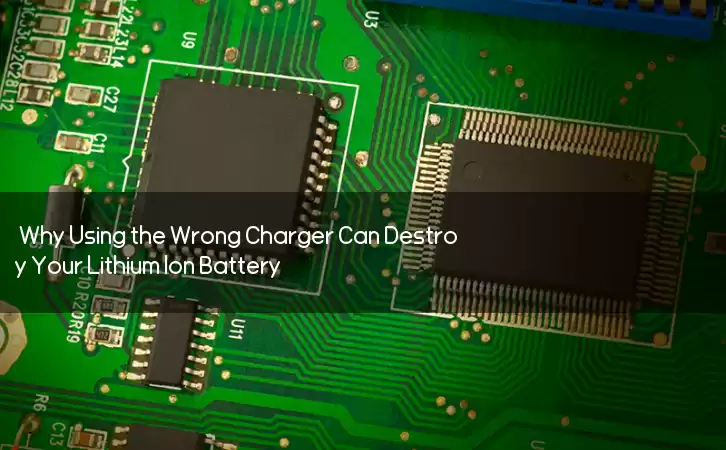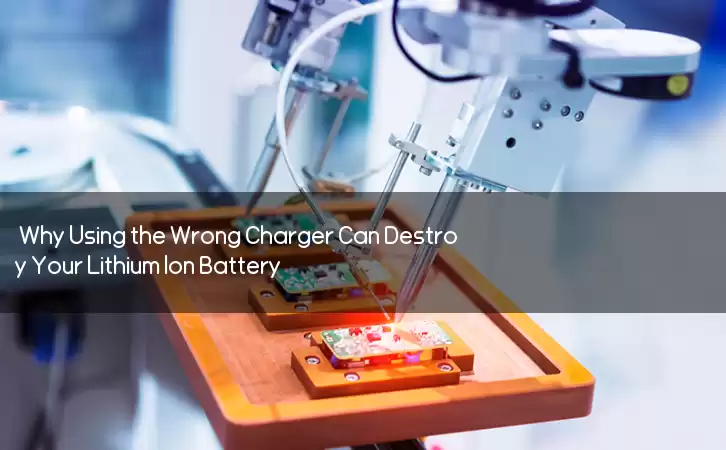Information Center
Why Using the Wrong Charger Can Destroy Your Lithium Ion Battery
Published:2023-08-09 00:40:59 Author:Green WCND Views:62Do Lithium Ion Batteries Need a Special Charger?

Lithium-ion batteries are the predominant type of batteries used in portable electronic devices today. They have high energy density, low self-discharge, and do not suffer from memory effect, making them the go-to choice for laptops, smartphones, and other devices. However, many people are not aware that these batteries need special chargers to maintain their performance and longevity.

The charging process for lithium-ion batteries is different from that of other types of batteries. Unlike traditional nickel-cadmium (Ni-Cd) or nickel-metal-hydride (Ni-MH) batteries, which require continuous charging to avoid memory effect, lithium-ion batteries need a specific type of charging to maintain their optimum performance. That’s why using a regular charger intended for other types of batteries can be detrimental to the health of your lithium-ion battery.
One of the reasons it’s essential to use a special charger for lithium-ion batteries has to do with the voltage settings. Lithium-ion batteries require a specific voltage to charge them, and if you use a non-compatible charger, it could result in overcharging or undercharging the battery, which can damage the battery or negatively impact its performance.
A regular charger generally delivers a constant voltage, which is not appropriate for lithium-ion batteries. Lithium-ion batteries require a charging method that is more complex than delivering a constant voltage. This is because lithium-ion batteries have a more delicate balance between charging and heat generation, and if this is not controlled correctly, it could lead to an explosion or fire.
Furthermore, lithium-ion batteries require a special circuitry that monitors the battery temperature and voltage during the charging process. This circuitry prevents the battery from overheating, which can damage its chemistry or cause it to fail.
If you are using the wrong charger for a lithium-ion battery, it may take longer to charge, and the battery’s overall life span may be shortened. Using a compatible charger for your lithium-ion battery ensures that it is charged correctly, reduces the risk of damage to your battery, and maintains its overall performance.
In conclusion, lithium-ion batteries require special chargers to ensure they remain in optimum condition. Using the wrong charger can damage the battery or reduce its performance, and potentially cause harm. Therefore, it’s essential to use a compatible charger and ensure that the charger is specifically designed for your device’s battery type. By using a compatible lithium-ion battery charger, you can extend the battery life and improve its performance, ensuring that your device operates efficiently and safely.
Power Adapter Design and Customization Guide for Portable Electric KettlesI. Common Design Types for Portable Electric Kettle Power AdaptersPortable electric ke···
I. Common Design Types of Power Adapters External Independent Type (Most Common) Design: A standalone adapter (e.g., "black brick") connected to the p···
Handheld Vacuum Cleaner Power Adapter Selection GuideIntroductionHandheld vacuum cleaners have become a mainstream tool for household cleaning due to their port···
Drill Power Adapter Selection Guide.drill-container { font-family: Arial, sans-serif; line-height: 1.6; max-width: 800px; margin: 0 auto; padding: 20px; } .dril···





